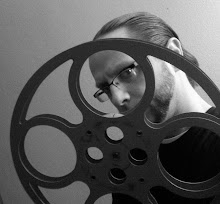The assassination of President John F. Kennedy in 1963 was
an incident that shook America down to its foundations, and one could argue
that the effects are still being felt today. For over 40 years, the incident
and the many people it affected has provided cinema with prime material; often
mined by biographers, conspiracy theorists, and historians. For Chilean
director Pablo Larrain, who was born 13 years after the assassination, finding
a fresh new angle in this tragedy was simple; explore the person who was
closest to the incident and lost the most.
Weeks after the assassination, the now widowed Jackie
Kennedy (Natalie Portman), invites a journalist (Billy Crudup), to her new home…where
she seeks to provide the public with her own version of the weeks after the
killing, including her dealings with new President Johnson (John Carroll Lynch),
a priest (John Hurt), and JFK’s brother Bobby (Peter Sarsgaard).
Set within the framework of Jackie’s conversation with a
semi-fictional journalist, JACKIE plays out like one of those unconventional
stoner flicks where characters just seem to hang around talking, not doing
much, and just letting their own stories and ramblings fill the time. A good
eighty-percent of the film is told in flashbacks, beginning days before the
assassination and following the difficult days and weeks afterwards. There is a
gritty realness to the film, as the script follows the new widow as she must
face the real-life tasks of planning funerals, breaking the news to her
children (a heart-ripping scene), finding a new place to live, and the grim
task of picking out a burial spot. It’s a series of difficult scenes to watch
simply because we have to experience it through Jackie…who is now a devastated
woman.
Pablo Lorrain uses the long flashbacks as opportunities to
explore Jackie, and he uses them very well. Each scene reveals a little bit
more about her, and the deeper he digs, the more profound the character
becomes. There’s a difficult juggling-act that Jackie has to pull off; mother,
widow, funeral-planner, and a reluctant un-official bearer of the entire Nation’s
grieving. Jackie’s story is certainly a tragic one, but watching her get
through it makes for a fascinating film.
Lorrain does a marvelous job in bringing 1960’s America back
to life. The old interiors of the White House are recreated in stunning detail,
and the recreation of Jackie’s historic TV tour through the White House is
breathtaking. Some clever usage of stock footage is implemented, giving the
film a very authentic feel, and the actual assassination of JFK is done
tastefully…but is also given its horrific due. The score by Mica Levi is
hauntingly beautiful.
Natalie Portman is outstanding as Jackie Kennedy. The accent
and mannerisms are perfect, and beneath that plays the part of a woman who is
coming unraveled underneath but must remain strong on the outside. Her scenes
with Bobby Kennedy (Peter Sarsgaard) are wonderful, and Sarsgaard does his best
to keep up with her. John Hurt is his usual magnificent self, and Billy Crudup
is very good in his limited time.
JACKIE mainly deals with love and loss (mostly on loss), and
doesn’t take much time to provide any laughs. This is one tragic and sad movie,
and maybe that’s the way it should be. This is an American tragedy that not
only rattled a country, but a wife and mother…and that should be the biggest
takeaway when we thumb through the history books. In the grand scale of the JFK
story, the intimate story is the most important.
BOTTOM LINE: See it


No comments:
Post a Comment
A few rules:
1. Personal attacks not tolerated.
2. Haters welcome, if you can justify it.
3. Swearing is goddamn OK.